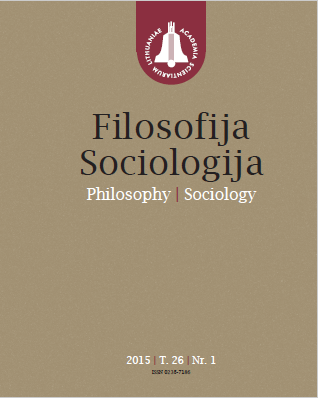Natūralistinė ir hermeneutinė mokslo topologijos
Naturalist and hermeneutical topologies of science
Author(s): Evaldas JuozelisSubject(s): Philosophy, Social Philosophy, Philosophy of Science, Hermeneutics
Published by: Lietuvos mokslų akademijos leidykla
Keywords: naturalist; hermeneutic; cognitive existentialism; science; culture
Summary/Abstract: Joseph Rouse’s philosophical program of cultural studies of scientific knowledge criticizes a radical distinction of nature-culture, as well as of scientific-nonscientific knowing and initiates a suspension of the conception of scientific autonomy. From the point of view of Dimitri Ginev’s cognitive existentialism, the cultural autonomy of science is a fundamental pillar of democracy, and naturalistic postmodern delocalization of science is seen as a scientification threat to culture and society. So to protect culture, society, democracy, and thus its own rights to scientific research, is the civil and academic obligation of hermeneutic narrative. In terms of cultural studies of scientific knowledge – on the contrary – the idea of the autonomy of science (which itself is the relic of modern narrative) promotes the cultural stigmatization of science, and hermeneutic phenomenology even encourages it. The article aims to compare neo-naturalist and hermeneutic-phenomenological topologies of science from the “meta philosophical” perspective and to evaluate the terms of their cooperation.
Journal: Filosofija. Sociologija
- Issue Year: 2015
- Issue No: 1
- Page Range: 3-11
- Page Count: 9
- Language: Lithuanian

